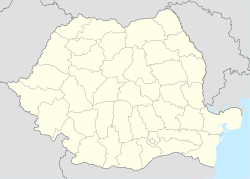뇌별 홈박스
Brain-specific homeobox뇌 특이 홈박스는 인간에게 BSX 유전자에 의해 암호화된 단백질이다.[1]
구조 및 표현 패턴
Bsx는 ANTP 등급에 속하는 전사 인자를 포함한 진화적으로 보존도가 높은 동종이다.[2] 생쥐에서 그것은 말뇌중격막, 소나무샘, 유체 및 아크이핵으로 표현되는 것으로 나타났다.[3]
시상하부의 기능
저탄소 아크쿠아 핵에서 Bsx는 두 개의 광유전성 신경펩타이드 아구티 관련 펩타이드와 뉴로펩타이드 Y의 정상 표현 수준에 필요한 것으로 입증되었다.[4]
솔방울샘의 기능
발톱이 달린 개구리 제노푸스의 소나무샘에서 Bsx는 순환 리듬에 따라 표현되며 광수용체 세포 분화를 제어한다.[5] 제브라피쉬에서 Bsx는 멜라토닌 방출 소나무세포, 광수용체 세포, 왼쪽으로 이동하는 파라핀 세포를 포함한 소나무샘 내의 모든 세포 유형의 정상적인 발달을 위해 필요하며,[6] 제브라피쉬에서는 뇌 비대칭의 확립에 매우 중요하다.[7]
참조
- ^ "Entrez Gene: BSX brain-specific homeobox".
- ^ Ferrier, David E. K. (14 April 2016). "Evolution of Homeobox Gene Clusters in Animals: The Giga-Cluster and Primary vs. Secondary Clustering". Frontiers in Ecology and Evolution. 4. doi:10.3389/fevo.2016.00036.
- ^ Cremona, M; Colombo, E; Andreazzoli, M; Cossu, G; Broccoli, V (January 2004). "Bsx, an evolutionary conserved Brain Specific homeoboX gene expressed in the septum, epiphysis, mammillary bodies and arcuate nucleus". Gene Expression Patterns. 4 (1): 47–51. doi:10.1016/S1567-133X(03)00151-0. PMID 14678827.
- ^ Sakkou, M; Wiedmer, P; Anlag, K; Hamm, A; Seuntjens, E; Ettwiller, L; Tschöp, MH; Treier, M (June 2007). "A role for brain-specific homeobox factor Bsx in the control of hyperphagia and locomotory behavior". Cell Metabolism. 5 (6): 450–63. doi:10.1016/j.cmet.2007.05.007. PMID 17550780.
- ^ D'Autilia, S.; Broccoli, V.; Barsacchi, G.; Andreazzoli, M. (22 March 2010). "Xenopus Bsx links daily cell cycle rhythms and pineal photoreceptor fate". Proceedings of the National Academy of Sciences. 107 (14): 6352–6357. Bibcode:2010PNAS..107.6352D. doi:10.1073/pnas.1000854107. PMC 2852004. PMID 20308548.
- ^ Schredelseker, Theresa; Driever, Wolfgang (1 July 2018). "Bsx controls pineal complex development". Development. 145 (13): dev163477. doi:10.1242/dev.163477. PMID 29945867.
- ^ Duboc, Véronique; Dufourcq, Pascale; Blader, Patrick; Roussigné, Myriam (23 November 2015). "Asymmetry of the Brain: Development and Implications". Annual Review of Genetics. 49 (1): 647–672. doi:10.1146/annurev-genet-112414-055322. PMID 26442849.


